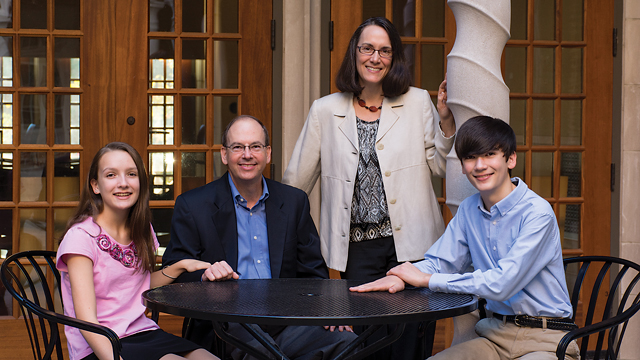My family is looking forward to the newest Star Wars adventure in theaters this holiday season. On our vacation this summer, we watched all six of the movies in a week. We saw the struggle to choose the side of good, the sway of the dark side, and the power of the force to defeat evil. This battle between good and evil goes on inside each one of us and it sometimes requires the concentration and discipline of a Jedi to make good choices.
There are many hazards teens encounter on their way to becoming responsible adults, and they are powerful: technology distractions, information overload, overscheduling, negative media messages, peer pressure, and too much homework. The media often focuses on the negative, sharing stories about unethical people, what they did, and how they did it (in great detail). Reading and viewing these shocking stories about unethical choices doesn’t prepare teens for an ethical life.
How can parents and families prepare teens to become responsible adults? The first step is to make it a priority.
1. Make time.
While we’re trying to work, run a household, and remember a hundred logistical details a day, we’re also trying to raise responsible teenagers. We have to take the time to delve into areas that are not apparent, but will define our children’s success and happiness in life: the boundaries of responsible behavior; the consequences of bad choices; the joys of doing the right thing; and the need to help others and be good citizens.
If we don’t provide a strong moral grounding, the world’s messages can quickly become the center of their lives. Think about what those messages are telling our teens to do – to value entertainment, money, popularity, and instant gratification. Those messages have no moral foundation. This leads us to the second important step.
2. Center them in values.
We constantly give our teens positive messages about good manners and responsibility. But think about all the messages to which they’re exposed. Our positive, values-based messages have to be more powerful, more frequent, and more compelling than those other messages.
We’re helping our children build a moral home base to center their lives in ethics and values, and that requires intention, focus, and persistence. When there are positive ethical stories in the news and in the books they read, we should talk about them. We can teach our teens that good is who we are, and that we should all make ethical choices even when that is difficult.
3. Tell them they’re good people – no matter what.
We need to help our children define themselves as good people who are learning. This requires frequently telling them they are good people, even when they make a mistake. We can treat ethical mistakes as detours from a path that they can return to and stay on.
Parents and teachers expect a lot. We need to be sure that we tell our teens that being honorable and responsible is more important to us than any other measure of success (including grades). This helps them define themselves as good people.
4. Help them find their contribution in the world.
We can actively support our teens as they find ways to contribute to creating a better world. Finding their individual contribution to making the community a better place will help them discover meaning and purpose, and that solidifies their moral identity.
We need to help them find ways to use what they are good at and what they love to be in service to others. When they turn their interests into service in the community, they realize how much their contribution matters in the world. They learn to use their interests and strengths to change the lives of others in positive ways. Although this point rings true all year long, the holiday season offers a variety of tangible opportunities for teens to serve others.
5. Build confidence in their ability to make ethical choices.
As parents, one of the most important things we can do is help teens learn to weigh multiple variables when making decisions. Our children can’t learn in advance how to handle every problem they’ll encounter. They need to learn how to use ethical thinking, so they will be well prepared for the difficult choices they will have to make.
Looking at the world through a framework of ethical lenses, we usually start with questions about how we can benefit. We’re human, and it’s natural to start there, but we also need to consider how others can benefit. How will our choices impact others, our schools, and the communities we live in? Using the widest angle lens, we can also look at how our choices impact the long-term greater good of society and the well-being of future generations.
Seeing the whole ethical picture can help teens stop before they do something they will later regret. We can help our teens learn to think past the what’s-in-it-for-me? stage by talking about the ways we see the world or by using examples from our own experience and stories in the news. There are many to choose from including hazing, cheating on tests, and lying, and I have found that they make interesting dinner table conversation for curious teens.
During this busy time of year, it’s easy to become focused on our holiday preparation and lose sight of the greatest gift we can give our children. In direct opposition to messages teens hear in the media, the good life is not about being better than other people or having the latest gadgets. It’s about growing into the best of who we can become.
Vague advice, like Do the right thing! does not address the need to think through the complexities of living and leading responsibly. I believe that helping our teens grow into the best of themselves is the highest calling of parenting. After all, our teenagers are not practicing to be uber-independent children. They’re practicing to become responsible adults in a complex world.




